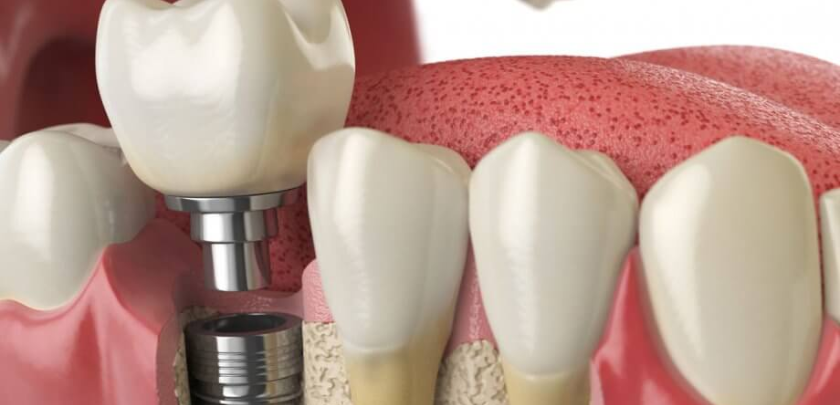Dentists recommend 2 exams per year. Book your exam today!
What Are The Restrictions After Dental Implants?

Are you considering getting dental implants to restore your smile and oral health? Congratulations on taking the first step towards a brighter, more confident future! Dental implants are a fantastic solution for replacing missing teeth, providing both aesthetic appeal and functional benefits. However, it’s important to be aware of the restrictions that come with the healing process after getting dental implants. In this blog post, we will explore these restrictions in detail and provide helpful tips for managing them effectively. So sit back, relax, and let us guide you through this journey towards optimal oral health!
The Healing Process After Dental Implants
After undergoing dental implant surgery, the healing process is a crucial stage in ensuring the success and longevity of your new teeth. It’s important to give yourself time to heal properly and follow any post-operative instructions provided by your dentist or oral surgeon.
During the initial days following surgery, it’s normal to experience some swelling, discomfort, and minor bleeding. Your dentist may prescribe pain medications or recommend over-the-counter pain relievers to help manage any discomfort you may feel. It’s also common for patients to be advised to apply ice packs on their face near the surgical site for short periods to reduce swelling.
In order for the dental implants to integrate with your jawbone properly, it’s essential that you follow a soft diet during the healing process. This means avoiding hard foods that can put pressure on the surgical area and potentially disrupt the healing process. Stick with softer foods like soups, mashed potatoes, yogurt, smoothies, and well-cooked vegetables.
To ensure optimal healing after dental implant surgery, it’s crucial that you avoid smoking or using tobacco products altogether, as they can hinder blood flow and delay healing. Additionally, minimizing physical activity in the first few days is advisable as excessive movement can increase bleeding at the surgical site.
Maintaining good oral hygiene is essential during this period as well. However, it’s vital not to brush directly over the surgical area until permitted by your dentist. Instead of brushing vigorously around implants immediately after surgery, gently rinse your mouth with a warm saltwater solution multiple times a day.
Remember that everyone heals differently; some individuals may require more time than others before returning to their regular routines without restrictions. Be patient with yourself throughout this recovery phase – allowing adequate time for rest will help speed up healing, ultimately leading to the successful integration of dental implants.
Common Restrictions After Dental Implants
After getting dental implants, it is important to be aware of the common restrictions that may apply during the healing process. While each individual’s experience may vary, there are some general guidelines to follow.
One common restriction after dental implants is avoiding hard or crunchy foods. These can put unnecessary pressure on the newly placed implant and potentially cause damage. It is best to stick to softer foods such as soups, mashed potatoes, and yogurt during the initial healing phase.
In addition, chewing on the side of your mouth where the implant was placed should be avoided. This helps prevent any strain or stress on the implant site and allows for proper healing.
Another restriction after dental implants is refraining from smoking or using tobacco products. Smoking can have negative effects on oral health in general, but it specifically hinders the healing process for implants by reducing blood flow to the area.
Physical activities that involve intense exertion or contact sports should also be avoided following dental implant surgery. These activities can increase swelling and risk of injury around the surgical site.
It’s important to follow these restrictions diligently in order to ensure successful healing and integration of your dental implants into your jawbone. Always consult with your dentist about any specific questions or concerns you may have about post-implant care
Foods to Avoid After Dental Implants
When it comes to post-dental implant care, one crucial aspect is being mindful of the foods you consume. While your implants heal and integrate with your jawbone, it’s important to avoid certain foods that can potentially cause damage or hinder the healing process.
It’s best to steer clear of hard and crunchy foods. These include nuts, popcorn, chips, and hard candies. Biting down on these types of foods can put excessive pressure on your implants and may even lead to implant failure.
Additionally, sticky or chewy foods should be avoided as they can get stuck in between your teeth and around the implant site. This includes items like chewing gum, caramel candies, and taffy.
Acidic foods such as citrus fruits (lemons, oranges) or vinegary dishes should also be limited during the initial healing phase. The high acidity levels in these foods can irritate sensitive tissues surrounding the dental implants.
Hot beverages like coffee or tea should be consumed with caution after dental implant surgery. Extreme temperatures can increase blood flow to the surgical area and potentially cause discomfort or complications.
Remember that every individual is unique in their healing process; therefore, it is always best to consult with your dentist for specific dietary recommendations based on your circumstances.
Activities to Avoid After Dental Implants
After getting dental implants, it’s important to take certain precautions and avoid activities that could potentially harm the healing process. While every case is unique, here are some general guidelines to keep in mind.
1. Strenuous Exercise: Engaging in intense physical activity can increase blood flow and cause bleeding around the implant site. It’s best to avoid activities like weightlifting, running, or contact sports for a few weeks after surgery.
2. Smoking: Smoking not only delays the healing process but also increases the risk of complications such as infection and implant failure. Quitting smoking before getting dental implants is highly recommended for better long-term results.
3. Chewing Hard Foods: During the initial healing period, it’s crucial to stick with soft foods that require minimal chewing. Avoid hard or crunchy foods like nuts, chips, or tough meats that can put excessive pressure on your implants.
4. Sleeping Habits: Be mindful of how you sleep after dental implant surgery. Try sleeping with your head slightly elevated using pillows to reduce swelling and promote proper circulation.
5. Tooth Grinding (Bruxism): If you have a habit of grinding or clenching your teeth at night, it’s essential to address this issue before getting dental implants. Bruxism can lead to implant complications and should be treated by wearing a mouthguard at night if necessary.
By following these recommendations and consulting with your dentist regularly throughout the recovery process, you’ll help ensure the successful integration of your dental implants.
Tips for Managing Restrictions and Speeding Up Healing
When it comes to managing restrictions and speeding up the healing process after dental implants, several tips can help you navigate this important phase of your treatment.
First and foremost, it is crucial to follow your dentist’s instructions carefully. This means sticking to any dietary restrictions or limitations on physical activities that have been recommended for you.
In terms of diet, focus on consuming soft foods that require minimal chewing during the initial stages of healing. This can include options such as soups, yogurt, mashed potatoes, and smoothies. Avoid hard or crunchy foods that could potentially damage the implant site.
Maintaining good oral hygiene is also essential for proper healing after dental implants. Gently brush your teeth twice a day with a soft-bristled toothbrush and use an antimicrobial mouthwash as instructed by your dentist.
Additionally, be mindful of any habits that may put unnecessary stress on the implant area. This includes avoiding smoking or excessive alcohol consumption, which can hinder the healing process.
Make sure to attend all follow-up appointments with your dentist so they can monitor your progress and address any concerns promptly.
By following these tips and taking care of yourself during the recovery period, you can help ensure successful healing and long-term success with your dental implants.
Long-Term Care for Dental Implants
Once your dental implants have fully healed and integrated with your jawbone, it’s important to maintain proper long-term care to ensure their longevity. Here are some key tips for taking care of your dental implants:
1. Maintain Good Oral Hygiene: Brushing twice a day and flossing daily is crucial for keeping your dental implants clean and free from plaque buildup. Use a soft-bristled toothbrush and non-abrasive toothpaste to avoid scratching the implant surfaces.
2. Regular Dental Check-ups: Schedule regular visits with your dentist for professional cleanings and examinations. Your dentist will monitor the health of your implants and detect any potential issues early on.
3. Avoid Bad Habits: Certain habits like smoking or chewing on hard objects can increase the risk of implant failure. It’s best to quit smoking altogether, as it not only affects healing but also increases the chances of gum disease.
4. Balanced Diet: A nutritious diet rich in vitamins and minerals promotes overall oral health, which in turn benefits your dental implants’ stability. Incorporate plenty of fruits, vegetables, lean proteins, and whole grains into your meals.
5. Protect Your Implants: If you participate in contact sports or activities that could potentially damage your mouth, wearing a mouthguard is essential to protect both natural teeth and implanted ones.
Dental implants are a fantastic option for restoring your smile and improving your overall oral health. While there may be some restrictions and limitations after the procedure, it is important to remember that these are temporary and necessary for proper healing.
During the healing process, it is crucial to follow your dentist’s instructions and avoid certain foods that can potentially damage or dislodge the implants. Sticky or hard foods should be avoided, as well as smoking or using straws which can hinder the healing process.
Additionally, certain activities, such as intense physical exercise, should be temporarily avoided to prevent any complications or discomfort. It’s essential to give yourself time to heal properly before resuming normal activities.
To manage any post-implant restrictions and speed up healing, make sure you maintain good oral hygiene by brushing gently with a soft-bristled toothbrush twice a day. Also, attend all follow-up appointments with your dentist for regular check-ups and professional cleanings.
Long-term care for dental implants involves maintaining excellent oral hygiene practices such as regular brushing and flossing. It is also important to continue visiting your dentist regularly for check-ups to ensure the longevity of your implants.
Remember, while there may be some initial restrictions after getting dental implants, they are well worth it in terms of achieving a beautiful smile that will last a lifetime. So stay patient during the recovery period, and soon enough, you’ll have every reason to show off those pearly whites!
If you have any concerns about post-implant restrictions or want more information about whether dental implants are right for you, consult with an experienced dentist who specializes in implant dentistry. They will guide you through the entire process from start to finish and help you achieve optimal results.
So go ahead – take that first step towards restoring your smile with confidence through dental implants! Your future self will thank you for it.







